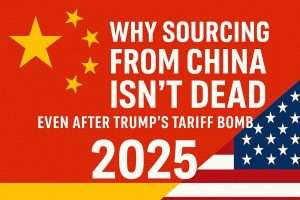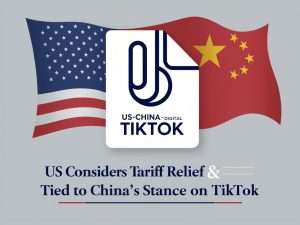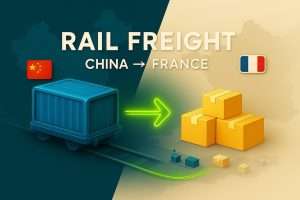Introduction to Chinese Supply Chain Negotiation
Have you ever wondered what makes the Chinese supply chain a global powerhouse? In the intricate web of international trade, the Chinese supply chain stands as a pivotal player. Understanding its complexities and the critical importance of effective negotiation can be the game changer for businesses looking to thrive in this competitive landscape.
Understanding the Complexities of the Chinese Supply Chain
The Chinese supply chain is renowned for its vastness and diversity. From small-scale manufacturers to colossal factories, it encompasses a wide array of suppliers. In 2020, China exported goods worth approximately $2.59 trillion. This staggering figure underscores the sheer size and capacity of the Chinese supply chain. However, navigating this maze requires more than just a basic understanding of trade; it requires insight into the cultural, economic, and logistical nuances that define Chinese trade practices.
The Critical Importance of Effective Negotiation in Chinese Trade
Negotiation is not just a part of the process; it’s an art that can significantly influence your business outcomes. In Chinese trade, effective negotiation can lead to better pricing, quality, and delivery terms. A study by McKinsey showed that businesses that excelled in negotiation practices saw a 15% increase in savings compared to their counterparts. Thus, mastering the art of negotiation in the Chinese market is not just beneficial; it’s imperative for success.
Company Type in China: Trading Company vs. Manufacturer

When it comes to sourcing products from China, understanding the type of company you’re dealing with is paramount. Is it a trading company or a manufacturer? This distinction can have a significant impact on your product range, pricing, and customization capabilities.
Impact on Product Range, Pricing, and Customization in Chinese Markets
A trading company typically offers a wider range of products, as they source from various manufacturers. This can be a boon for businesses looking for variety. However, a manufacturer might provide lower prices due to the absence of middlemen and offer more room for customization. For instance, a trading company might offer LED lights at a competitive price, but a manufacturer could customize the design and functionality to suit specific needs.
Strategic Factory Location in China: Beyond Geography

The location of a factory in China is more than just a point on a map. It plays a crucial role in logistics and the quality of labor and materials.
Logistics Considerations in Chinese Supply Chain Management
The strategic location of a factory can significantly influence transportation costs and delivery times. For example, factories located near major ports like Shanghai can offer more efficient shipping options. This geographical advantage was highlighted during the pandemic when factories closer to ports were able to resume exports faster than those in remote areas.
Assessing Quality of Labor and Materials in Chinese Manufacturing
The quality of labor and materials in a factory is often reflective of its location. Regions like Guangdong are known for their skilled labor and advanced manufacturing technologies, leading to higher quality products. In contrast, other regions might offer lower costs but at the expense of quality. It’s a balance that must be carefully considered in the context of your product requirements.
Workforce Size and Supplier Capacity in China

How does the size of a workforce in a Chinese factory impact your business negotiations? Understanding the workforce size is a crucial aspect of assessing a supplier’s overall capacity and capability in China’s bustling manufacturing sector.
Indicators of Manufacturing Capacity in Chinese Factories
The number of employees in a factory is a telling indicator of its manufacturing capacity and operational scale. A large workforce often signifies a factory’s ability to handle bulk orders and maintain consistent quality under high production demands. For instance, Foxconn, a major player in electronics manufacturing, employs hundreds of thousands of workers, enabling them to fulfill massive orders for global tech giants.
Implications of Factory Size in Chinese Trade
Conversely, a smaller workforce might indicate a more specialized or boutique operation, potentially offering more customized solutions but with limited capacity. This could be advantageous for businesses seeking unique, tailored products, but it also means careful consideration of the supplier’s ability to scale up if needed.
Market Experience of Chinese Suppliers

Are you tapping into the full potential of your Chinese supplier’s market experience? The global footprint and market experience of Chinese suppliers can greatly influence their suitability for your business needs.
Understanding the Global Reach of Chinese Suppliers
A supplier’s experience in various international markets is crucial. It reflects their ability to meet diverse regulatory standards and consumer preferences. For example, a supplier proficient in exporting to the EU must be well-versed in GDPR and other compliance requirements, which is invaluable for businesses targeting European markets.
Navigating Quality Standards and Experience in Chinese Markets
Moreover, suppliers with a broad market experience are often more adept at adapting to quality standards required in different regions. They bring a wealth of knowledge in handling logistical challenges and cultural nuances that could be pivotal for a successful international venture.
Clientele and Brand Reputation in Chinese Manufacturing

Does the clientele list of a Chinese supplier speak volumes about their capability and quality? Indeed, the brands and companies a supplier works with can provide significant insights into their reputation and reliability.
Analyzing the Client Portfolio of Chinese Suppliers
The presence of well-known brands in a supplier’s client portfolio is often a strong indicator of their quality and reliability. For instance, a supplier who manufactures components for high-end automotive brands is likely to adhere to stringent quality controls and precision standards.
Quality and Capacity Indicators from Established Chinese Brands
Moreover, a diverse client base can also signify the supplier’s ability to handle a range of product specifications and order sizes. It reflects their flexibility and adaptability to meet varying client demands, crucial for businesses looking for a long-term, versatile manufacturing partner.
Retail Experience in Chinese Supply Chains

Have you considered how a supplier’s retail experience can shape your procurement strategy? In China’s dynamic supply chain, a supplier’s experience with retail orders can make a significant difference in managing large orders and meeting complex retail standards.
Managing Large Orders with Chinese Manufacturers
Suppliers well-versed in retail operations are adept at scaling production and meeting tight deadlines, essential for large-scale orders. For example, suppliers like Li & Fung, which cater to major retail chains, are known for their robust infrastructure and ability to handle voluminous orders efficiently, ensuring timely delivery without compromising on quality.
Meeting Complex Standards in Chinese Retail
These suppliers also have a keen understanding of international compliance and quality standards, crucial for retail products. They are more likely to have established quality control processes and familiarity with certifications required in various markets, making them reliable partners for businesses aiming for global retail presence.
Deciphering MOQ with Chinese Suppliers

Is your business strategy aligned with the MOQs of Chinese suppliers? Understanding and negotiating the Minimum Order Quantity (MOQ) is a critical aspect of doing business with Chinese suppliers, balancing order size and cost.
Balancing Order Size and Unit Cost in Chinese Trade
The MOQ directly influences unit cost and overall investment. A high MOQ can lead to better pricing but requires a larger upfront investment. For instance, electronic component suppliers might offer significant cost reductions at higher MOQs, which can be advantageous for large-scale production but may pose a risk for smaller or niche businesses.
Aligning Business Needs with Chinese Manufacturing Constraints
Negotiating the MOQ requires a careful evaluation of your inventory turnover and storage capabilities. It’s about finding a balance that aligns with your business model and cash flow requirements. Some suppliers are open to negotiating MOQs, especially if there’s potential for long-term collaboration or if the buyer can demonstrate market potential.
Lead Time Management in Chinese Manufacturing

How do you synchronize your business timeline with the unpredictable nature of manufacturing lead times in China? Effective lead time management is crucial for maintaining a smooth supply chain and avoiding costly delays.
Synchronizing Business Timelines with Chinese Suppliers
Understanding a supplier’s lead time and factoring it into your business schedule is essential. Suppliers with advanced production capabilities and efficient supply chain management can often offer shorter lead times. For instance, companies like Huawei have optimized their supply chains to reduce lead times, enhancing their competitiveness in the global market.
Strategies to Avoid Delays in Chinese Supply Chains
To mitigate risks of delays, establish clear communication channels and regular updates from suppliers. Consider incorporating buffer times into your schedule and explore options for expedited production in critical situations. Additionally, understanding the Chinese holiday calendar, especially around the Chinese New Year, is crucial as it significantly impacts production schedules across the country.
Navigating Payment Terms with Chinese Suppliers

Do you know how to navigate the complex landscape of payment terms with Chinese suppliers? Mastering the nuances of payment terms is crucial for maintaining a healthy business relationship and ensuring financial stability.
Understanding and Negotiating Favorable Payment Conditions
Negotiating favorable payment terms is a delicate balance of understanding your supplier’s constraints and protecting your cash flow. In China, it’s common to start with a 30% deposit and the remainder upon shipment. However, terms can vary widely, and factors like order size, relationship history, and product type play a significant role. For instance, longer payment terms might be negotiable with a supplier for a large, recurring order.
Crafting Mutually Beneficial Payment Terms in Chinese Trade
Crafting payment terms that are mutually beneficial is key. It’s about more than just delaying payment; it’s about creating terms that ensure financial security for both parties. For example, some suppliers may offer discounts for earlier payments, which can be advantageous for both parties, helping improve the supplier’s cash flow and reducing the buyer’s overall costs.
Assessing Sample Availability in Chinese Manufacturing

How crucial are samples in determining the quality and suitability of products from Chinese manufacturers? Sampling is an integral part of the sourcing process, providing firsthand insight into product quality.
Evaluating Quality Through Samples in Chinese Trade
Requesting samples before placing a full order allows for a direct assessment of material quality, craftsmanship, and adherence to specifications. For example, in the textile industry, samples are essential to evaluate fabric quality, print accuracy, and overall design. It’s a small investment that can prevent costly mistakes down the line.
Insights into Sample Policies of Chinese Suppliers
Understanding a supplier’s sample policy is important. Some suppliers may offer free samples, while others charge, especially for custom-designed products. This fee is often deductible from the final order. The key is to clarify these terms upfront to avoid misunderstandings and ensure the sample accurately represents the final product.
Cultural Nuances in Chinese Business Negotiations

Are you aware of how cultural nuances can significantly impact your negotiations with Chinese suppliers? Navigating these subtleties can be the difference between a successful deal and a missed opportunity.
Mastering Chinese Business Etiquette for Successful Trade
Understanding and respecting Chinese business etiquette is crucial. It involves more than just language; it’s about appreciating business practices, negotiation styles, and decision-making processes. For instance, building a relationship (Guanxi) is often more important than the immediate business transaction, influencing long-term success.
Building Trust and Lasting Relationships in Chinese Markets
Trust and relationship-building are cornerstones of Chinese business culture. Showing respect, patience, and willingness to understand your supplier’s perspective can go a long way. Celebrating Chinese festivals or acknowledging them in communications can be a simple yet effective way to show respect and build a stronger relationship.
Effective Negotiation Strategies with Chinese Suppliers

What strategies can ensure you emerge victorious in negotiations with Chinese suppliers? Successful trade in China often hinges on adopting the right negotiation tactics and understanding the intricacies of the market.
Communication Tips for Successful Trade in China
Effective communication is the cornerstone of any successful negotiation. In China, this means being clear, respectful, and patient. Utilizing simple yet precise language is key to avoiding misunderstandings. For instance, clear articulation of product specifications and timelines helps prevent discrepancies. Moreover, adopting a flexible approach and showing a willingness to understand your supplier’s constraints can lead to more productive negotiations.
Leveraging HAI International Holding’s Expertise in Chinese Market Negotiations
For businesses new to the Chinese market, leveraging the expertise of freight forwarders like HAI International Holding can be invaluable. Their deep understanding of local business practices and legal requirements can help navigate complex negotiations, ensuring that both parties reach a mutually beneficial agreement.
Avoiding Common Pitfalls in Chinese Supplier Negotiation

Are you aware of the common pitfalls that can derail negotiations with Chinese suppliers? Avoiding these mistakes is crucial for a smooth and successful business transaction.
Navigating Challenges in Chinese Manufacturing Deals
One of the key challenges is not recognizing the importance of relationship building (Guanxi). Another common error is ignoring the cultural nuances, such as the significance of face-saving in business interactions. Additionally, a lack of due diligence or underestimating the value of a thorough quality inspection process can lead to issues post-agreement.
How HAI International Holding Facilitates Smooth Trade with Chinese Suppliers
HAI International Holding plays a pivotal role in helping businesses navigate these challenges. Their expertise in local compliance, customs regulations, and logistical planning ensures that clients avoid common pitfalls that can occur during negotiations and supply chain management.
Conclusion: Mastering Negotiations with Chinese Suppliers
What are the key takeaways for mastering negotiations in the Chinese market? Understanding and implementing effective negotiation strategies are crucial for success in this competitive landscape.
Summarizing Key Negotiation Strategies in Chinese Trade
To recap, effective negotiation in China involves understanding the cultural nuances, maintaining clear and respectful communication, and being prepared to build lasting business relationships. It’s also about being adaptable, understanding the supplier’s capabilities and constraints, and seeking expert guidance when necessary.
Highlighting HAI International Holding’s Role in Streamlining Chinese Supply Chains
HAI International Holding’s expertise in the Chinese market is invaluable for businesses looking to navigate these waters. Their guidance can help streamline the negotiation process, ensuring a smoother and more successful trade experience in the dynamic and ever-evolving Chinese supply chain.
FAQ: Negotiating with Chinese Suppliers
What are the key factors to consider when negotiating with Chinese suppliers?
Understanding the type of company you're dealing with is crucial, as it affects the product range, customization options, and pricing. Assessing the factory location is important for logistical planning and understanding the quality of labor and materials. Workforce size gives an insight into the supplier's capacity and flexibility. Market experience reveals the supplier's familiarity with various global markets and their quality standards. Discussing the Minimum Order Quantity (MOQ) is essential to align with your business needs. Lead times need to be realistic and fit within your business timeline. Negotiating favorable payment terms is key to balancing financial needs, and requesting samples helps in assessing product quality and specifications.
How important is understanding cultural nuances in negotiations with Chinese suppliers?
Cultural nuances, including business etiquette and the concept of Guanxi (relationship-building), are crucial in Chinese business culture. Respecting these aspects enhances trust and facilitates smoother negotiations, leading to more successful outcomes.
What role does HAI International Holding play in negotiations with Chinese suppliers?
HAI International Holding provides valuable insights into local market practices, assists in navigating legal and compliance issues, and aids in logistical planning. Their expertise makes the negotiation process more efficient and effective, especially for businesses unfamiliar with the Chinese market.
How can I effectively communicate with Chinese suppliers if there is a language barrier?
Using simple, clear language is important, and hiring a skilled translator can be invaluable. Ensure that written communication is precise and unambiguous to avoid misunderstandings. Being patient and open to learning about cultural differences also aids in overcoming communication barriers.
What are some common pitfalls to avoid in negotiations with Chinese suppliers?
One major pitfall is not acknowledging the importance of relationship-building and cultural understanding. Neglecting thorough quality inspections and due diligence can lead to issues post-agreement. It’s also important to avoid making assumptions based on Western business practices, as the Chinese market has its own unique characteristics and expectations.












